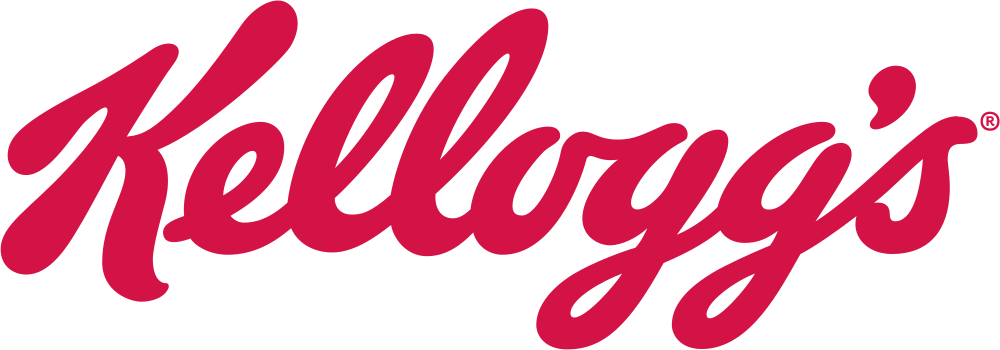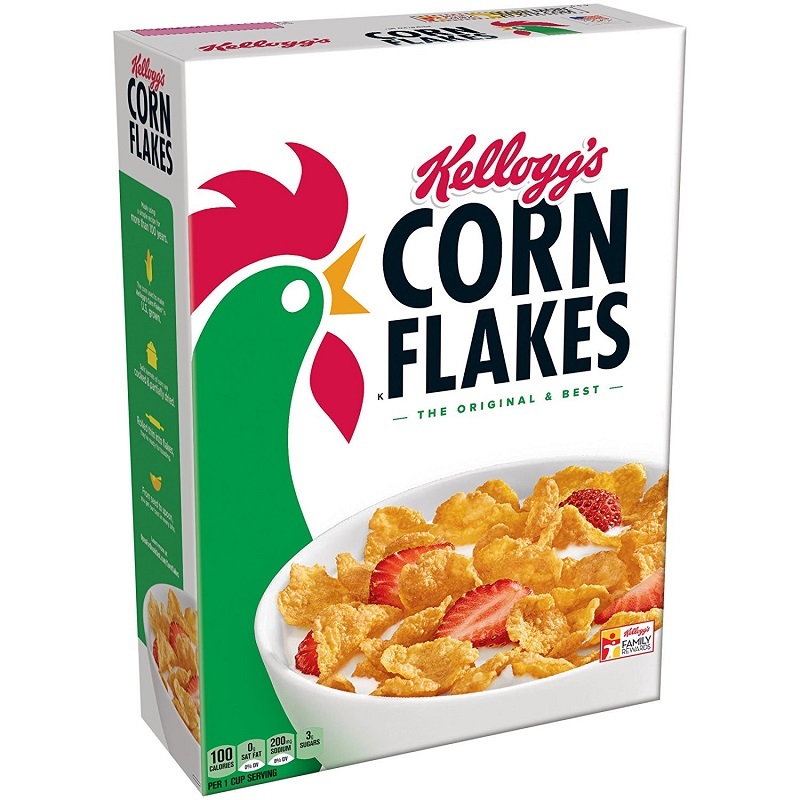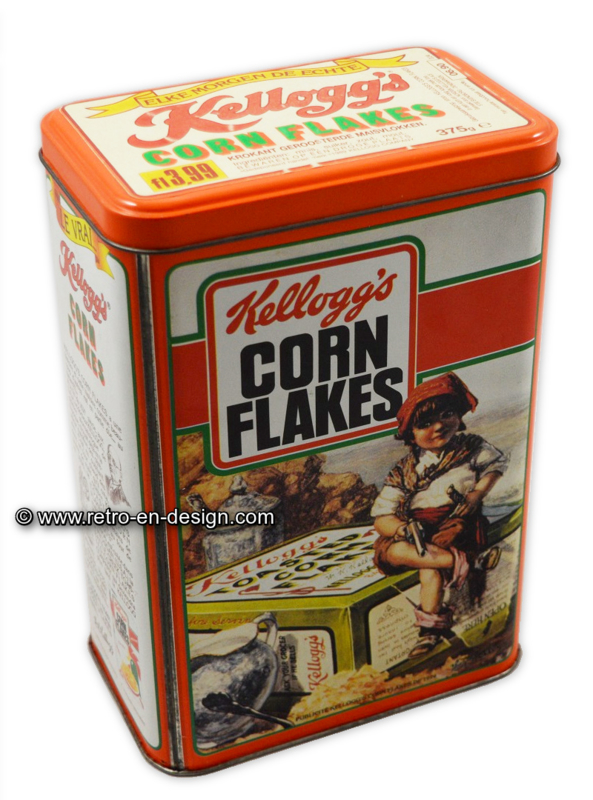A R C H I V E
Vintage tin Kellogg's Cornflakes, orange storage container
SKU: 947Vintage tin Kellogg's Cornflakes, orange storage container.
Gorgeous storage tin from Kellogg's for Cornflakes. The well-known tin in an orange version. Reproduction of the original image of the cornflakes pack from 1914. Loose lid with rolled edge. Lid is provided with the text: "Every morning the real one" (Dutch). Kellogg's Cornflakes, crispy roasted corn flakes. Furthermore on the back and side texts in French and Dutch.
This tin is from the 80s and is in a neat vintage condition. Suitable for a whole pack of cornflakes.
- Height: 26 cm.
- Width: 18 cm.
- Depth: 11.5 cm.

The Kellogg Company (also Kellogg's, Kellogg, and Kellogg's of Battle Creek) is an American multinational food manufacturing company headquartered in Battle Creek, Michigan, United States. Kellogg's produces cereal and convenience foods, including cookies, crackers, toaster pastries, cereal bars, fruit-flavored snacks, frozen waffles, and vegetarian foods. The company's brands include Froot Loops, Apple Jacks, Corn Flakes, Frosted Flakes, Rice Krispies, Special K, Cocoa Krispies, Keebler, Pringles, Pop-Tarts, Kashi, Cheez-It, Eggo, Nutri-Grain, Morningstar Farms, and many more. Kellogg's stated purpose is "Nourishing families so they can flourish and thrive."
Kellogg's was founded as the Battle Creek Toasted Corn Flake Company on February 19, 1906, by Will Keith Kellogg as an outgrowth of his work with his brother John Harvey Kellogg at the Battle Creek Sanitarium following practices based on the Seventh-day Adventist Church. The company produced and marketed the hugely successful Kellogg's Toasted Corn Flakes and was renamed the Kellogg Company in 1922.
In 1930, the Kellogg Company announced that most of its factories would shift towards 30-hour work weeks, from the usual 40. W.K. Kellogg stated that he did this so that an additional shift of workers would be employed in an effort to support people through the depression era. This practice remained until World War II, and continued briefly after the war, although some departments and factories remained locked into 30-hour work weeks until 1980.
From 1969 to 1977, Kellogg's acquired various small businesses including Salada Foods, Fearn International, Mrs. Smith's Pies, Eggo, and Pure Packed Foods; however, it was later criticized for not diversifying further like General Mills and Quaker Oats were. After underspending its competition in marketing and product development, Kellogg's U.S. market share hit a low 36.7% in 1983. A prominent Wall Street analyst called it "a fine company that's past its prime" and the cereal market was being regarded as "mature". Such comments stimulated Kellogg chairman William E. LaMothe to improve, which primarily involved approaching the demographic of 80 million baby boomers rather than marketing children-oriented cereals. In emphasizing cereal's convenience and nutritional value, Kellogg's helped persuade U.S. consumers age 25 to 49 to eat 26% more cereal than people of that age ate five years prior. The U.S. ready-to-eat cereal market, worth $3.7 billion at retail in 1983, totaled $5.4 billion by 1988 and had expanded three times as fast as the average grocery category. Kellogg's also introduced new products including Crispix, Raisin Squares, and Nutri-Grain Biscuits and reached out internationally with Just Right aimed at Australians and Genmai Flakes for Japan. During this time, the company maintained success over its top competitors: General Mills, which largely marketed children's cereals, and Post, which had difficulty in the adult cereal market.

Some translations come from an automated system and may contain errors.





















